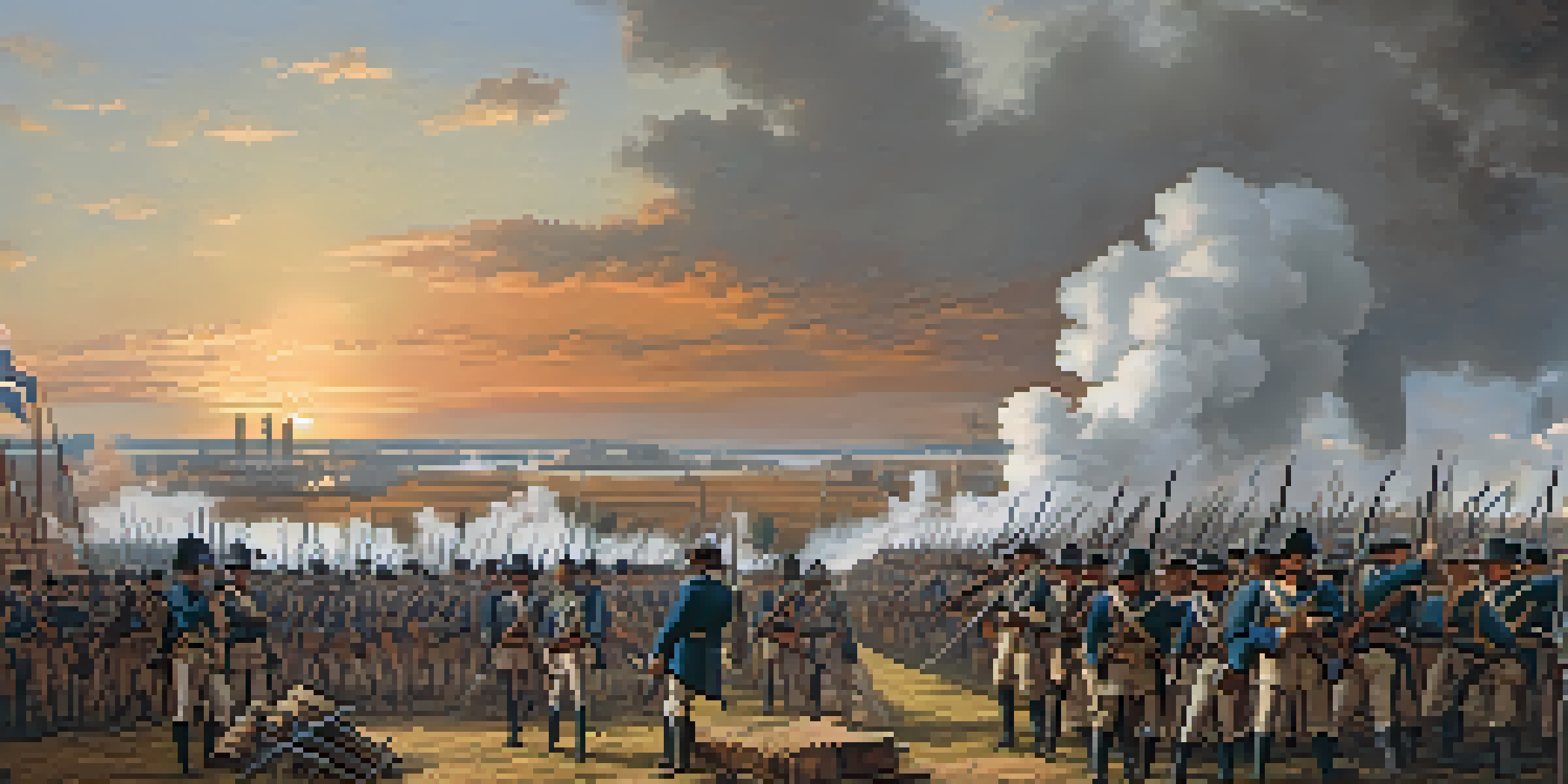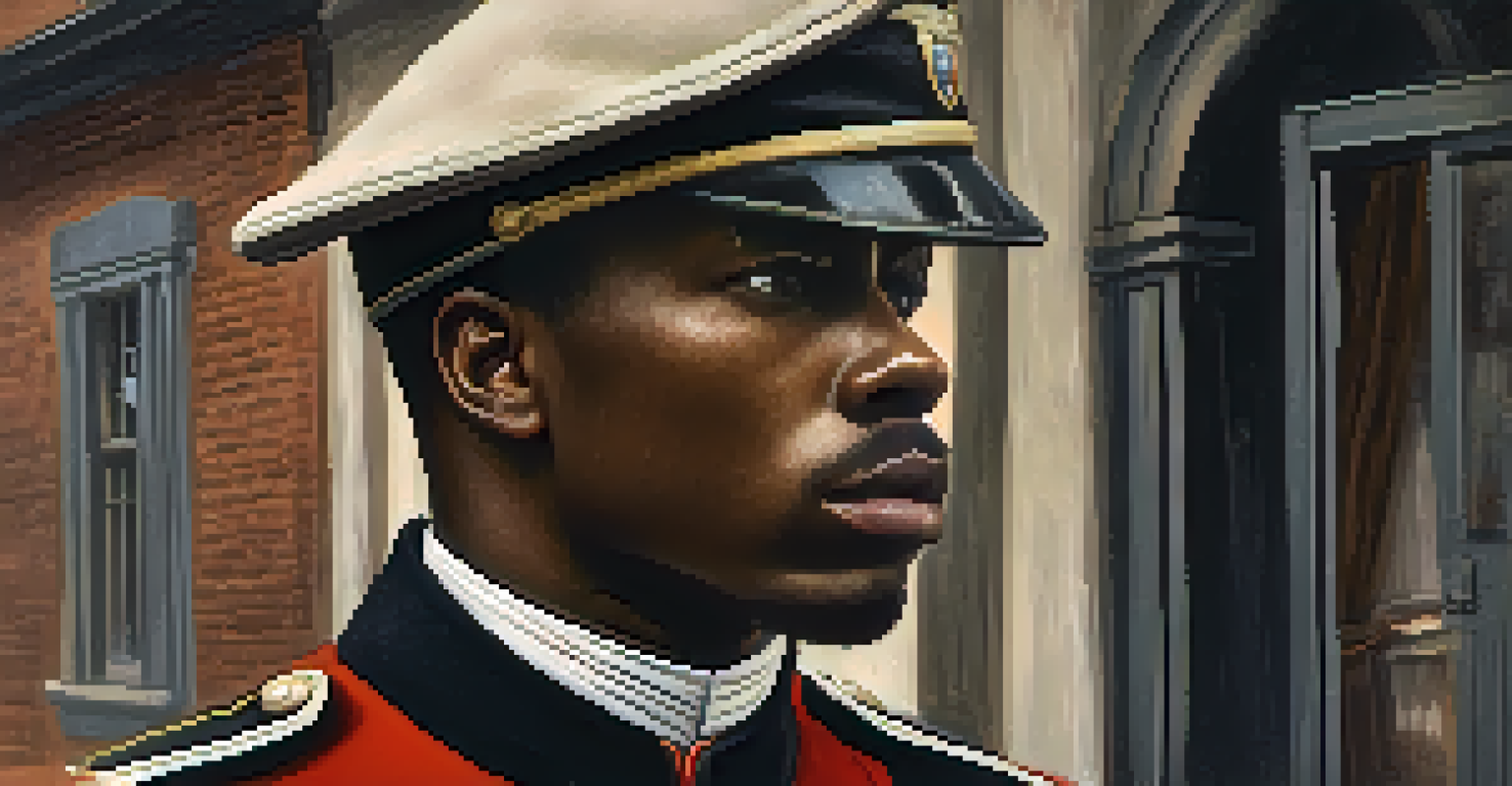The Siege of Savannah: A Turning Point in Civil War History

Overview of the Siege of Savannah: Key Events Unfold
The Siege of Savannah took place from September to December 1864, marking a pivotal moment in the American Civil War. Union forces aimed to capture Savannah, Georgia, to cut off Confederate supply lines and gain a strategic foothold in the South. Led by General William Tecumseh Sherman, the Union's approach involved a combination of military might and strategic planning.
War is hell, and it is that reality that we must face when we look back at events like the Siege of Savannah.
As Sherman's troops advanced from the recently captured city of Atlanta, they faced fierce resistance from Confederate forces under General John B. Hood. The siege began in earnest when Union forces surrounded the city, aiming to starve out the defenders. This tactic was not just about firepower; it was a psychological game that sought to demoralize the enemy.
The siege culminated in a series of battles and skirmishes, as both sides fought tenaciously for control. The Union's determination to capture Savannah was fueled by the broader goal of ending the war sooner and reclaiming the South. Ultimately, this siege would have far-reaching implications for the war's outcome.
Strategic Importance of Savannah in the Civil War
Savannah was a crucial port city, serving as a gateway for supplies and resources for the Confederate army. Its location along the Atlantic coast made it vital for trade, particularly in cotton, which was a major export for the South. Capturing Savannah would not only disrupt Confederate logistics but also bolster Union morale and resources.

The city had been fortified with strong defensive positions, making it a formidable challenge for the Union forces. Understanding the significance of this stronghold, Sherman devised a strategy that involved cutting off supply routes and pressuring the Confederate defenders. This approach highlighted the importance of both military tactics and resource management in wartime.
Siege of Savannah: A Turning Point
The Siege of Savannah marked a pivotal Union victory that solidified control over the southeastern United States during the Civil War.
By controlling Savannah, the Union could effectively strangle the Confederate war effort. This shift in power dynamics underscored the strategic significance of the siege, demonstrating how a single battle could influence the course of the entire conflict. The Union military leaders recognized this and were determined to see it through.
Key Players: Generals Sherman and Hardee
General William Tecumseh Sherman was a key figure in the Siege of Savannah, known for his aggressive tactics and innovative strategies. His famous 'March to the Sea' had already devastated the state of Georgia, and capturing Savannah was the final piece of his campaign. Sherman's leadership style was characterized by his ability to adapt to changing circumstances and make bold decisions.
The army of the South has been defeated, and that of the North is now in the ascendant; indeed, the Savannah siege was a turning point in the war.
On the Confederate side, General William J. Hardee commanded the defenders of Savannah. Hardee was skilled in defensive warfare, but he faced overwhelming odds against Sherman's well-supplied and organized forces. The tension between these two generals added a dramatic layer to the siege, as each sought to outmaneuver the other.
The clash of these two military minds represented the broader struggle of the Civil War, where strategy and perseverance played crucial roles. Their encounters were marked by both tactical brilliance and the harsh realities of war, shaping the fate of Savannah and the South. In the end, the decisions made by both generals would resonate throughout history.
Life Inside Savannah During the Siege
As the siege progressed, life within Savannah became increasingly difficult for its residents. The city's population faced food shortages, dwindling supplies, and the constant threat of bombardment. Civilians were caught in the crossfire, highlighting the human cost of the conflict and the toll it took on everyday life.
Many residents sought refuge in makeshift shelters, while others attempted to continue their daily routines amidst the chaos. The atmosphere was one of anxiety and uncertainty, as families struggled to cope with the realities of war. The resilience of the Savannah people became evident as they banded together to support one another during this trying time.
Role of African American Soldiers
African American soldiers significantly contributed to the Union's efforts during the siege, showcasing their bravery and commitment to the fight for freedom.
Stories of bravery emerged from the civilian population, showcasing their determination to survive. These personal narratives provide a glimpse into the emotional landscape of the siege, reminding us that war is not only fought on battlefields but also within communities. The experiences of those in Savannah serve as a poignant reminder of the war's impact on ordinary lives.
The Role of African American Soldiers in the Siege
African American soldiers played a crucial role in the Siege of Savannah, contributing significantly to the Union's efforts. Many formerly enslaved individuals enlisted in the United States Colored Troops (USCT), motivated by the desire for freedom and the chance to fight for their rights. Their participation not only bolstered Union numbers but also symbolized the changing nature of the war.
These soldiers faced unique challenges, including discrimination and skepticism from some of their white counterparts. Despite this, they proved their valor and dedication on the battlefield, demonstrating their commitment to the Union cause. Their bravery during the siege was a testament to their strength and resilience.
The inclusion of African American troops marked a significant shift in the Civil War, emphasizing the importance of emancipation and equality. Their contributions helped pave the way for future advancements in civil rights. The legacy of these soldiers continues to inspire generations, reminding us of the diverse voices that shaped American history.
Consequences of the Siege: Union Victory and Beyond
The Siege of Savannah concluded on December 21, 1864, with a decisive Union victory. The successful capture of the city marked a turning point in the Civil War, as it solidified Union control over the southeastern United States. This victory not only boosted Northern morale but also weakened the Confederate war effort significantly.
Following the siege, Sherman’s forces continued their campaign through the South, further dismantling Confederate infrastructure. The fall of Savannah opened up new supply lines for the Union and allowed for a more aggressive approach in other territories. The strategic implications of this victory were profound, as it contributed to the eventual defeat of the Confederacy.
Life Under Siege in Savannah
Civilians in Savannah endured severe hardships during the siege, highlighting the human cost of the conflict and their resilience amidst adversity.
The aftermath of the siege also had lasting effects on the city of Savannah itself. The capture led to changes in governance and social dynamics, setting the stage for Reconstruction. Understanding the consequences of the Siege of Savannah helps us appreciate its role in shaping not just military history, but also the social fabric of the nation.
Legacy of the Siege of Savannah in American History
The Siege of Savannah remains a significant chapter in American history, representing the complexities of the Civil War. Its impact extends beyond the battlefield, influencing public perception and military strategy in subsequent conflicts. The siege serves as a reminder of the sacrifices made and the lessons learned during this tumultuous period.
Commemorating the Siege of Savannah allows us to reflect on the broader themes of resilience, courage, and the struggle for justice. Historical sites and museums in Savannah today serve as important educational resources, ensuring that the stories of those who lived through the siege are not forgotten. Visitors can explore the rich history and appreciate the sacrifices made by both soldiers and civilians.

Ultimately, the legacy of the Siege of Savannah is not just about military tactics or territorial gains; it is about the people who endured and shaped the course of history. Understanding this legacy encourages us to engage with our past, fostering a sense of connection to those who came before us. The siege stands as a testament to the enduring spirit of a nation still grappling with its identity.